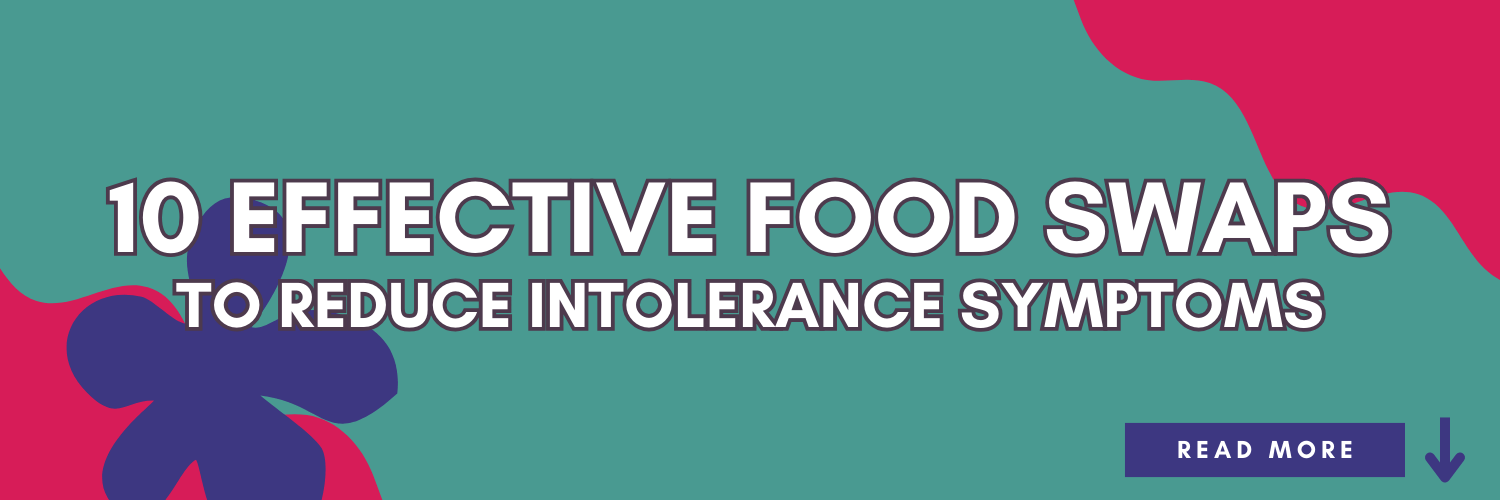Many people have found adapting to a low FODMAP diet helpful in managing IBS symptoms. The theory is that High FODMAP foods tend to be major triggers for IBS suffers, and removing or limiting consumption of those triggers has been shown to significantly reduce symptom severity [1].
What is a Low-FODMAP Diet?
The idea behind the low FODMAP diet is that a group of short-chain carbohydrates, fermentable oligo-, di-, and monosaccharide and polyol (FODMAPs), are the suspected primary causes of IBS flare-ups. Maintaining a diet fairly low in these carbohydrates (not excluded completely) has shown to reduce symptoms for those with IBS [2, 3].
The Benefits of Low FODMAP Diet
There are several benefits that a large portion of people can get from adopting the low-FODMAP diet;
- Reduced histamine & inflammation: A 2017 study found that a diet low in FODMAPs altered levels of histamine in the body [4]. And it follows that lower overall levels of histamine would also reduce overall inflammation levels.
- Reduced digestive symptoms: Several studies have consistently illustrated the efficacy of a low FODMAP diet in reducing IBS symptoms. [2,3]
- Improved Quality of life: Because of the reduction in symptoms, studies have seen patients report better quality of life as a result of limiting their FODMAP intake.
- Less risk of SIBO: Small intestinal bacterial overgrowth (SIBO) is a condition where either too much or the wrong kind of bacteria grows in the small intestine. Low-FODMAP diets have been linked with a reduced risk of SIBO – which is significantly more common in IBS patients.
Potential Drawbacks of Low-FODMAP Diet
While there is a lot to be said for the low-FODMAP diet, it isn’t entirely perfect. A few of the drawbacks of this unconventional diet include;
- Potential for nutrient deficiencies: Restricting the diet so drastically increases the risk that you’ll develop nutritional deficiencies, so it’s important that you take extra care in keeping your diet well balanced.
- Not recommended long-term: Despite the benefits of a strictly low-FODMAP diet, it isn’t recommended as a long-term solution for those with digestive issues. Experts recommend going low-FODMAP for a few weeks (up to 8) in what’s been coined as an elimination diet.
- Strict and anti-social: A diet so strict could be seen as anti-social and make it more difficult when out socialising with friends and family – though, if it improves your health enough, you might feel the diet is worth it.
Final thoughts
For anyone experiencing digestive symptoms or looking to improve their gut health, going with the low-FODMAP diet could be quite beneficial. If, however, you feel this diet is too restrictive to start out with, you might benefit from undertaking a food intolerance test to determine your food intolerances and alter your diet, less drastically, from there.
If you don’t currently experience any symptoms, it’s likely best to keep a well-balanced diet. Avoid allowing your diet to be dominated by high FODMAP foods, but also don’t eliminate them completely. There are benefits and keeping the diet varied as well as risks in unneeded restriction.
References
[1] Halmos, E.P., Power, V.A., Shepherd, S.J., Gibson, P.R. and Muir, J.G. (2014). A Diet Low in FODMAPs Reduces Symptoms of Irritable Bowel Syndrome. Gastroenterology, [online] 146(1), pp.67-75.e5. Available at: https://www.gastrojournal.org/article/S0016-5085(13)01407-8/fulltext [Accessed 18 Feb. 2020].
[2] Gearry, R., Skidmore, P., O’Brien, L., Wilkinson, T. and Nanayakkara, W. (2016). Efficacy of the low FODMAP diet for treating irritable bowel syndrome: the evidence to date. Clinical and Experimental Gastroenterology, [online] p.131. Available at: https://www.ncbi.nlm.nih.gov/pmc/articles/PMC4918736/ [Accessed 18 Feb. 2020].
[3] Dimidi, E., Rossi, M. and Whelan, K. (2017). Irritable bowel syndrome and diet: where are we in 2018? Current opinion in clinical nutrition and metabolic care, [online] 20(6), pp.456–463. Available at: https://www.ncbi.nlm.nih.gov/pubmed/28872467 [Accessed 18 Feb. 2020].
[4] McIntosh, K., Reed, D.E., Schneider, T., Dang, F., Keshteli, A.H., De Palma, G., Madsen, K., Bercik, P. and Vanner, S. (2017). FODMAPs alter symptoms and the metabolome of patients with IBS: a randomised controlled trial. Gut, [online] 66(7), pp.1241–1251. Available at: https://www.ncbi.nlm.nih.gov/pubmed/26976734 [Accessed 18 Feb. 2020].






